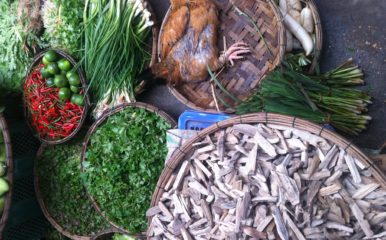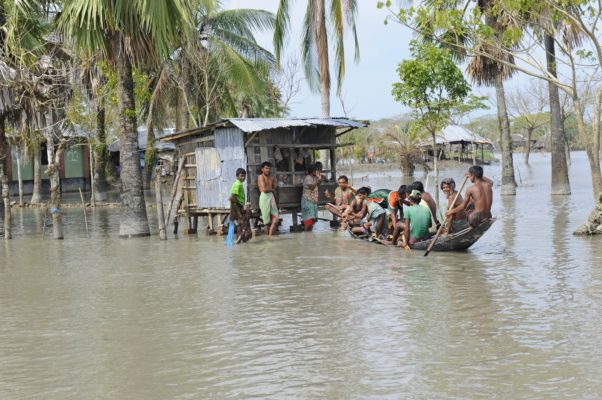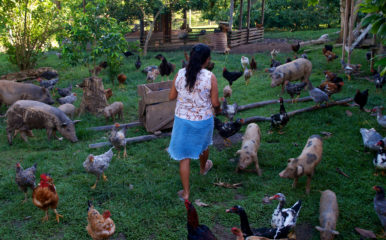
Roadmap Series
Food systems: climate change and animal-source food
Published on 28/04/2021
How can we balance the need to reduce the greenhouse gas emissions associated with livestock production with the need for animal-source food to maintain a healthy human diet?

DFID/flickr
This event featured panellists Professor Mark Howden, Director of the Climate Change Institute at the Australian National University, and Dr Julia de Bruyn, Senior Fellow in Food Systems and Nutrition at The Natural Resources Institute of the University of Greenwich, UK. It was moderated by Professor Robyn Alders, of Chatham House, UK, and took place on Wednesday 28 April 2021.
Watch the recording here:
Panellists' key messages
- The role of animal-source foods in sustainable, healthy diets varies substantially between contexts, population groups, food items and production systems.
- Diverse forms of evidence can contribute to an improved understanding of the nutritional impact of animal-source food consumption.
- Animal-source foods present a vital opportunity to improve nutrient intake of nutritionally-vulnerable groups in resource-poor settings, and should be balanced with efforts to promote healthy diets and avoid over-consumption.
- The links between livestock and climate change are important and complex. They go both ways and intersect with many other issues.
- Livestock are likely to be an ongoing component of food and nutrition security so we need to find ways to reduce its footprint and to adapt to accelerating climate change.
- Action is needed but is currently not well supported by options. Even so, it is clear that there is alignment between animal health, human health, action on climate change and environmental stewardship more broadly.


